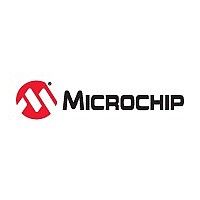hcs301 Microchip Technology Inc., hcs301 Datasheet - Page 13

hcs301
Manufacturer Part Number
hcs301
Description
Keeloq Code Hopping Encoder
Manufacturer
Microchip Technology Inc.
Datasheet
1.HCS301.pdf
(30 pages)
Available stocks
Company
Part Number
Manufacturer
Quantity
Price
Company:
Part Number:
hcs301-I/P
Manufacturer:
MICROCHIP
Quantity:
12 000
Part Number:
hcs301-I/P
Manufacturer:
MICROCHIP/微芯
Quantity:
20 000
Part Number:
hcs301-I/SN
Manufacturer:
MICROCHIP/微芯
Quantity:
20 000
Company:
Part Number:
hcs301-SN
Manufacturer:
Agilent
Quantity:
500
Part Number:
hcs301-SN
Manufacturer:
MICROCHIP/微芯
Quantity:
20 000
Company:
Part Number:
hcs301/P
Manufacturer:
MICROCHIP
Quantity:
12 000
Part Number:
hcs301/P
Manufacturer:
MICROCHIP/微芯
Quantity:
20 000
Company:
Part Number:
hcs301/SN
Manufacturer:
MICROCHIP
Quantity:
5 600
Part Number:
hcs301/SN
Manufacturer:
MICROCHIP/微芯
Quantity:
20 000
6.0
When using the HCS301 in a system, the user will have
to program some parameters into the device including
the serial number and the secret key before it can be
used. The programming cycle allows the user to input
all 192 bits in a serial data stream, which are then
stored internally in EEPROM. Programming will be
initiated by forcing the PWM line high, after the S2 (or
S3) line has been held high for the appropriate length
of time line (Table 6-1 and Figure 6-1). After the Pro-
gram mode is entered, a delay must be provided to the
device for the automatic bulk write cycle to complete.
This will set all locations in the EEPROM to zeros. The
device can then be programmed by clocking in 16 bits
at a time, using S2 (or S3) as the clock line and PWM
as the data in line. After each 16-bit word is loaded, a
FIGURE 6-1:
FIGURE 6-2:
S2 (S3)
S2 (S3)
(Clock)
(Clock)
Note 1: Unused button inputs to be held to ground during the entire programming sequence.
(Data)
PWM
(Data)
2001 Microchip Technology Inc.
PWM
Note: If a Verify operation is to be done, then it must immediately follow the Program cycle.
End of Programming Cycle
2: The V
PROGRAMMING THE HCS301
Enter Program
Bit190
T
PS
Mode
DD
Bit191
T
PH
pin must be taken to ground after a Program/Verify cycle.
1
PROGRAMMING WAVEFORMS
T
VERIFY WAVEFORMS
PH
T
2
WC
T
PBW
T
Bit 0
Beginning of Verify Cycle
CLKH
Bit 0
T
CLKL
Bit 1
Bit 1 Bit 2
T
Bit 2
DS
T
DV
Repeat for each word (12 times)
T
Bit 3
DH
Data for Word 0 (KEY_0)
Data from Word 0
Bit 3
programming delay is required for the internal program
cycle to complete. This delay can take up to T
end of the programming cycle, the device can be veri-
fied (Figure 6-2) by reading back the EEPROM. Read-
ing is done by clocking the S2 (or S3) line and reading
the data bits on PWM. For security reasons, it is not
possible to execute a verify function without first pro-
gramming the EEPROM. A Verify operation can only
be done once, immediately following the Program
cycle.
Bit 14
Note:
Bit 14
Bit 15
To ensure that the device does not acci-
dentally enter Programming mode, PWM
should never be pulled high by the circuit
connected to it. Special care should be
taken when driving PNP RF transistors.
Bit 15
T
WC
Bit 16 Bit 17
HCS301
Bit 16
DS21143B-page 13
Data for Word 1
Bit190 Bit191
Bit 17
WC
. At the












